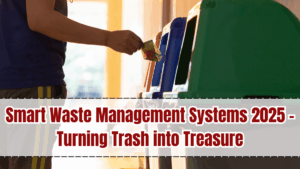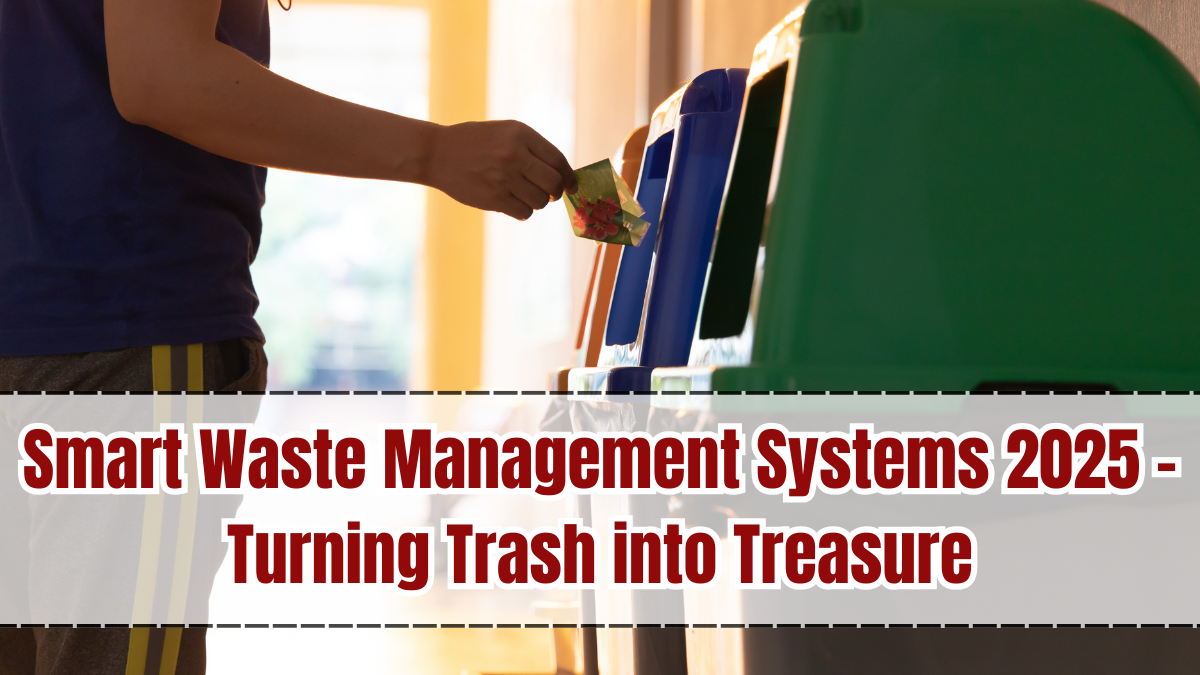Urbanization has led to massive increases in waste generation, putting pressure on landfills, the environment, and public health. Traditional waste collection methods often fail to cope with the sheer volume of garbage, leading to pollution and inefficiency. In 2025, Smart Waste Management Systems are revolutionizing how cities handle waste by using technology, data analytics, and automation to create cleaner and more sustainable living environments.

What are Smart Waste Management Systems?
Smart Waste Management Systems are technology-driven solutions that optimize the collection, sorting, recycling, and disposal of waste. These systems rely on IoT sensors, AI, and data analytics to improve efficiency and minimize environmental impact.
Key features include:
-
Smart bins with fill-level sensors to alert collectors in real time.
-
AI-powered sorting machines to separate recyclables from non-recyclables.
-
GPS-enabled waste trucks for optimized collection routes.
-
Mobile apps allowing citizens to schedule pickups and report waste issues.
-
Waste-to-energy technologies converting trash into usable resources.
Why They Matter in 2025
With rising concerns about pollution and sustainability, Smart Waste Management Systems 2025 are essential for creating eco-friendly cities. These systems reduce landfill dependency, increase recycling rates, and cut down carbon emissions from inefficient waste transport. They also ensure cleaner neighborhoods, promoting better public health and enhancing urban living standards.
Benefits of Smart Waste Management
The advantages of adopting smart waste solutions are wide-ranging:
-
Efficiency: Optimized routes save fuel and reduce collection costs.
-
Cleanliness: Smart bins prevent overflow and reduce littering.
-
Sustainability: Increases recycling and waste-to-energy conversion.
-
Cost Savings: Reduces waste management expenses for municipalities.
-
Community Engagement: Citizens can track and participate in eco-friendly waste practices.
Role of Technology
Technology drives innovation in waste management. IoT sensors collect real-time data on bin usage, while AI analyzes patterns to predict collection needs. Robotics and AI-driven machines improve waste segregation at recycling plants. Blockchain ensures transparency in recycling chains, while waste-to-energy plants use modern technologies to generate electricity from biodegradable materials. Together, these technologies are redefining waste as a resource rather than a problem.
Government and Industry Initiatives
Governments across the world are mandating zero-waste targets for cities, investing in smart bins, and supporting recycling startups. Industry leaders are developing AI-powered waste segregation systems and partnering with municipalities to create efficient recycling ecosystems. Cities like Singapore, Amsterdam, and Dubai are already showcasing pilot projects where smart bins, AI monitoring, and waste-to-energy plants work in harmony.
Future of Smart Waste Management
By 2030, waste management will become a fully circular system. Every piece of waste will be tracked digitally, with blockchain ensuring accountability at every step. AI will enable predictive waste collection, while autonomous electric waste trucks will replace traditional fleets. More importantly, citizens will play an active role through gamified recycling apps that reward eco-friendly habits.
Conclusion
Smart Waste Management Systems 2025 represent a paradigm shift from outdated waste collection methods to futuristic, tech-driven solutions. By turning trash into treasure through recycling and energy conversion, these systems create cleaner cities and promote sustainability. The future of urban living will depend not just on producing less waste but on managing it smartly—and 2025 marks the beginning of that transformation.
FAQs
What are Smart Waste Management Systems 2025?
They are technology-driven solutions that optimize waste collection, segregation, and recycling using AI, IoT, and automation.
How do smart bins work?
They use sensors to detect fill levels and alert collection teams, preventing overflow and reducing unnecessary pickups.
Do smart waste systems help the environment?
Yes, they reduce landfill use, increase recycling, and cut carbon emissions from waste transport.
Are waste-to-energy systems part of smart waste management?
Yes, many cities are using biodegradable waste to generate electricity, reducing reliance on landfills.
What is the future of waste management?
By 2030, predictive AI, blockchain tracking, and autonomous waste fleets will make waste management fully circular and sustainable.
Click here to know more.
